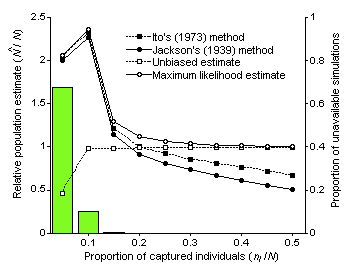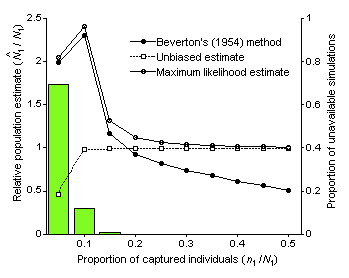We suggest here easy-to-use equations for population estimation for a single
mark-release experiment in which individuals are captured at two points in time
without being re-released. Two models are considered. Both models adopt an assumption
that the survival rate of marked individuals is constant. In Model A, the total
number of individuals including marked and non-marked individuals is assumed
to be constant. The proportion of captured individuals need not be constant in
this model. In Model B, the probability that an individual is captured is assumed
to be constant. The total number of individuals need not be constant in this
model. Maximum likelihood estimates and the unbiased estimates are derived in
explicit form for both Model A and Model B. The relation with classical methods,
such as Jackson’s positive method and Itô’s modified positive
method, is examined. Numerical simulation indicates that the unbiased estimates
work better than do other methods in both Model A and Model B.

Figure 1. Biases in the population estimates evaluated by simulation
experiments in Model A and related models. Rectangles show the proportion of
unavailable simulations.

Figure 2. Biases in the population estimates evaluated by
simulation experiments in Model B and related models. Rectangles show the proportion
of
unavailable simulations.